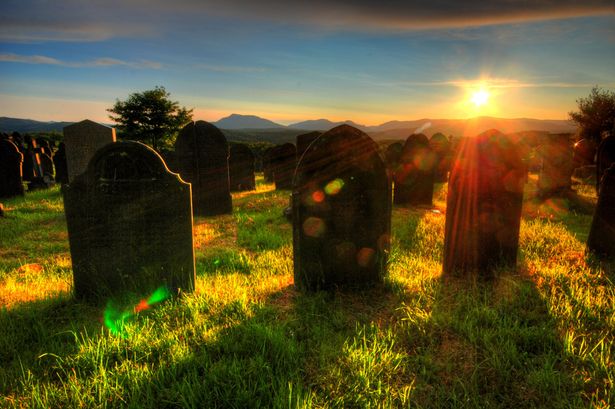A mai "FOGAS" kérdés pedig: HOGYAN VÁLASSZUNK FOGORVOST?
Újabb "LYUKAS" SZÖVEGET (gapfilling) hoztam Nektek, melynek harci feladata már jól ismert lesz: Helyezz vissza a cikk végén megadott 7 mondat közül 6-ot a szövegben hagyott GAPekbe (rés/szöveglyuk), tehát egy elem felesleges lesz, azt ki kell hagyni. Rajta!
A FELADATOT A FENTI KÉPRE VAGY IDE KATTINTVA INTERAKTÍVAN IS MEGOLDHATOD ONLINE !!
One problem that practically everyone faces is how to go about finding a "good" dentist. _____1_____ As a consumer, there are several aspects you should consider about your dentist and their office after you have decided on a particular dentist to care for your teeth.
The internet is filled with dentists who all have one thing in common: a license to practise dentistry in your country. However, they all have different personalities, different levels of experience, and different degrees of expertise. Before you begin looking for a dentist, you should ask yourself these questions:
Are you looking for a dentist near your home, or are you willing to travel a reasonable distance to be treated by a particular dentist you trust and like?
Are certain times of the day or week better for you? Some dentists have early or late office hours; some work on Saturdays. How important are these considerations?
Do you have a physical handicap that requires special attention? Some general dentists and certain specialists cater to specific problems. Also, handicapped patients may need to consider the physical layout of the dental office and its location in relation to parking.
What is your problem? Do you need your teeth cleaned and checked? Do you have an emergency? _____2_____
Do you need a general dentist or a specialist? General dentists are trained to do all types of treatment; however, if you have difficult or unusual problems, the general dentist may refer you to a specialist.
The most readily available sources of information about dentists are your friends, acquaintances, work associates, family physician, or pharmacist. Ask them how long they have gone to their dentist, and how they made their selection. You will primarily find out something about these dentists' personalities, but you should realize that you will rarely get much information about their technical abilities.
_____3_____ They can assist you by recommending several dentists in your area who seem to fit your needs. Then you can call these dentists and decide for yourself if you feel comfortable. You may also want to check on the credentials of a particular dentist. For example, you may want to know if the dentist providing orthodontic treatment is a specialist or a general dentist. Your local dental society can also help you find a dentist if you have an emergency situation. Most societies have rotating emergency lists of dentists who have volunteered to take dental emergency calls on a 24-hour basis.
If you are moving, your current dentist is an excellent person to ask for recommendation. Many times, if they do not know anyone, they will have a colleague who can give them a recommendation.
_____4_____
Is the dentist or their hygienist prevention oriented, pointing out things you can do yourself in order to maintain good dental health? The dentist and their hygienist should provide oral prophylaxis (tooth cleaning), fluoride treatments, sealants, replacements for missing teeth, and needed restorations (fillings). Home care is up to you.
Do they emphasize continued long-term care? In other words, is there a recall system that automatically notifies you when it's time for you periodic checkup?
Does the dentist use dental X rays, when needed, to assist in diagnosing your problem? On the initial visits to their office, they should request that you have X rays taken of all your teeth so they can determine the overall condition of your mouth. On subsequent visits X rays should be taken as needed. No dentist should restore a tooth without proper X rays. At the time of the X ray, note if the dentist is radiation conscious. They should place a lead apron over you to protect you from any "scatter radiation". He should even have a thyroid collar on the lead-lined apron.
Using the information from the X rays and other diagnostic parameters of evaluation, a dentist can suggest what treatment is needed to restore your mouth to good condition again. _____5_____ Dental problems are much less expensive to treat in their early stages.
Does the dentist take a complete medical and dental history to be included as part of your permanent record? This gives the dentist insight into your particular needs. It can also help prevent possible complications. For instance, it would alert the dentist to allergies you might have to medicines, or to an illness that might require modification of the usual treatment. Even if you have gone to this particular dentist regularly for a period of time, you should be sure that they are aware of any changes in your medical status, medicines you might be using now, or allergies that might have been detected since your last visit. _____6_____ Let you dentist make this decision. For example, you might recently have found that you are a diabetic. This is significant to your dentist, even though the disease has no apparent direct involvement with your teeth. The reason is that diabetes causes a delay in the healing process. Diabetes also can cause gingivitis (gum inflammation). This may mean you need to make more frequent visits to their office to have your teeth cleaned.
Does the dentist or their staff openly discuss your treatment needs, fees, and payment plans in advance of treatment? This approach allows both parties' expectations to be met, and fosters a lasting relationship.
Is emergency care available? Though many dentists list their telephone numbers, others have answering services. Usually, an answering service takes calls and help you find either your own dentist or someone who has agreed to handle after-hours emergency calls. Some dental societies have a list of volunteer dentists who will meet your emergency needs on a 24-hour basis.
The most important step in finding a dentist, however, is to look before you need one, not after you have no choice but to take whoever is available.
/Better Dental Care by J.F. Taintor/
A) Do not make the decision on your own that any medical information is of no dental significance.
B) Like all things in nature, our teeth and their supportive structures tend to break down in time.
C) Most people make this crucial decision several times during their lives.
D) Another way to find a dentist is to call your local dental society.
E) These factors will determine whether you need to see someone immediately or whether you can wait for a regular scheduled appointment.
F) Several aspects of the dentist’s practice can give you useful information in making your choice.
G) This is a far better and less expensive route for you to take than just "taking care of what hurts".


